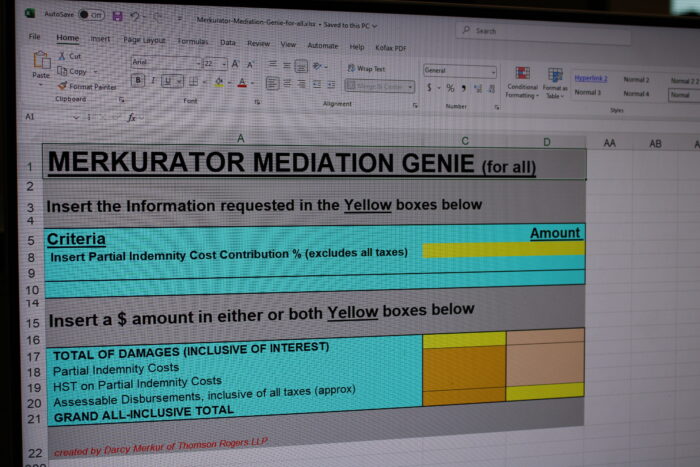Consent Forms at Defence & Insurer Examinations: “To Sign Or Not To Sign?”
Author(s): Deanna S. Gilbert
June 3, 2013
In what seems to be an increasing phenomenon, injured Plaintiffs/Insureds are being asked to sign Consent Forms when they attend a tort defence medical examination or an insurer examination (“IE”) pursuant to the SABS. A common scenario arises when the Plaintiff/insured is suddenly presented with a Consent Form; refuses to sign it without first consulting with her lawyer; the examiner refuses to proceed with the assessment; and the whole process is stalled.
Is There a Legal Requirement to Sign?
It must be clearly stated from the outset that there is no legal requirement that a Plaintiff/Insured sign a Consent Form before a defence medical or IE. More specifically:
- There is no civil procedure or SABS provision which compels a Plaintiff/insured to sign a Consent Form prior to a defence medical or IE.
- The Superior Court and FSCO case law does not support the proposition that a Consent Form must be signed prior to a defence medical or IE.
- There is nothing in the Health Care Consent Act, 1996, which requires an examiner to obtain a signed Consent Form.
- There are no regulatory college policies, procedures, or guidelines thatmandate that an examiner obtain a signed Consent Form prior to proceeding with an assessment.
Health care professionals are required to obtain informed consent; however, this may be accomplished verbally or in writing. Further, when documenting consent in writing, there is no requirement that this be done by way of a Consent Form. Rather, it can be a notation made in the examiner’s clinical records.
The challenge is that many health care professionals, in particular physicians, feel pressure to obtain a signed Consent Form for fear of being questioned by the College of Physicians and Surgeons of Ontario. None of the CPSO policies on 3rd party examinations, however, require a signed Consent Form; only some of the policies recommend that one be obtained. Further, policies are not law and the law does not require a Consent Form.
Are Consent Forms Really that Bad?
Most Consent Forms are basic and “inoffensive”. In those circumstances, notwithstanding the absence of any legal requirement to sign, it may be better to sign rather than “making a mountain out of a mole hill”.
In other circumstances, the Consent Form may contain “offensive” provisions, which ought to be removed before the Plaintiff/Insured signs, if she signs at all. A non-exhaustive list of such provisions includes:
- Disclaimer provisions (e.g. “I release Dr. X from any liability arising from this IE).
- Pro forma and/or overly broad provisions (e.g. “I agree to the assessor conducting an assessment of attendant care needs”…when the injury falls within the MIG, such that there is no entitlement to attendant care benefits).
- Provisions with unduly complicated language making the Consent Form difficult to understand or vague.
- Provisions authorizing the use of the test data for research-purposes (e.g. release of information beyond the scope of the defence medical or IE).
- Provisions containing blank spaces that the examiner may later fill in after the Plaintiff/Insured has signed (e.g. “I consent to your speaking with _________________ after my assessment if you require more information”).
What Are Possible Consequences in Refusing to Sign?
Some examiners will refuse to proceed with the assessment. In both the tort and accident benefits context, the Plaintiff/Insured will likely have to re-attend on some other occasion. It may be with the same expert (if the Consent Form issue is resolved with the help of the lawyers) or a new expert who does not insist upon a signed Consent Form. Apart from the inconvenience, in the tort context, this may delay other key steps in the litigation, such as mediation. In the accident benefits context, this may delay the determination of whether an Insured is entitled or continues to be entitled to receive a benefit. If the benefit is income replacement benefits, for instance, a delay may be very difficult upon the Insured.
Accordingly, it is in everyone’s interest – the Plaintiff/Insured, examiner, and party who retained the examiner – to ensure that any Consent Form issues (including whether the Plaintiff/Insured will be asked to sign one) are dealt with well-in advance of the assessment.
View PDF version: ABR Updater | Issue 10 | May 2013
Share this








